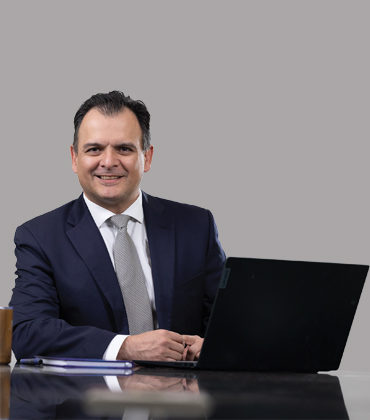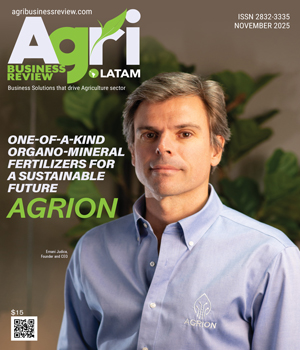"Sugarcane is the oil of the tropics, and we’re proving it can fuel not just Guatemala but also the future of food, energy, and biotechnology,” says Jorge R. Leal, CEO of Magdalena.
That belief has carried Magdalena from a family mill to a global sustainable innovator. Leadership passed from founder Luis Fernando Leal to his wife, Yolanda, who brought a community-first philosophy, to Jorge R. Leal today, who carries that ethos into international expansion and innovation.
Magdalena supplies roughly 24 percent of Guatemala’s sugar output and contributes about 10–12 percent of the nation’s energy needs through biomass power. It also produces high-grade sugar and ethanol for domestic and export markets. The business now spans agri-energy and early-stage biotechnology, with initiatives in synthetic biology and biomolecules. Operations emphasize circular practices, renewable power, and sustainable agriculture.
Turning Sugarcane into Energy, Ethanol and Opportunity
Magdalena sees itself as a company that converts solar energy into sugar, ethanol, and renewable energy for Guatemala and exports worldwide. Bagasse produces steam that drives turbines for electricity, and sucrose becomes refined sugar or high-purity alcohol for beverage and pharmaceutical uses.
 As a price-taker in sugar and electricity, the company relies on cost and yield discipline, precise material accounting and circular byproduct reuse to cut waste and imported-fuel dependence. Its high-specification sugar qualifies for international bottlers, while its alcohol meets demanding standards in the beverage industry.
As a price-taker in sugar and electricity, the company relies on cost and yield discipline, precise material accounting and circular byproduct reuse to cut waste and imported-fuel dependence. Its high-specification sugar qualifies for international bottlers, while its alcohol meets demanding standards in the beverage industry.
The electricity business is primarily local, with periodic exports to El Salvador. Magdalena supplies the grid at competitive cost under Guatemala’s regulated merit-order market, where the lowest-cost units dispatch first and all dispatched units receive the marginal price. Biomass cogeneration provides electricity that is not dependent on weather or imported fuels.
High-Quality Sugar Output Supporting Global Brands
The Magdalena Sugar Mill has the capacity to process 40,000 metric tons of sugarcane per day. Harvesting is concentrated in Guatemala’s dry season, yielding several million tons annually. Sugar production is the primary focus, yet nothing goes to waste. Non-crystallized sugars are processed into alcohol, with a facility capable of producing up to 420,000 liters per day from molasses.
The company also operates a refinery, producing refined white sugar and other grades such as brown and raw sugar. With a capacity of 3,200 tons of refined sugar daily, it ranks among the larger mill-integrated refineries in the Americas.
Closing the Loop with a Circular Economy Model
Magdalena follows a circular economy model in which every stage of production is designed to reuse resources and minimize waste. Most cane is harvested green, leaving leaves to restore soil nutrients. At the mill, byproducts such as mud are converted into compost and returned to cane fields or shared with other producers.
Molasses is fermented into alcohol in alcohol production, while bagasse is repurposed to generate renewable energy for Guatemala’s grid.
Beyond sugarcane, this circular philosophy guides its expansion into biomolecules, where emerging projects explore the potential of synthetic biology to convert byproducts into valuable inputs.
How Magdalena Translates Client Needs into Value
 Magdalena’s commitment to client satisfaction is reflected across all three core products. Though indistinguishable to end users, electricity is supplied as renewable energy from biomass, directly supporting Guatemala’s climate commitments. Refined sugar meets strict global standards, while alcohol production supports food and beverage markets with quality and consistency.
Magdalena’s commitment to client satisfaction is reflected across all three core products. Though indistinguishable to end users, electricity is supplied as renewable energy from biomass, directly supporting Guatemala’s climate commitments. Refined sugar meets strict global standards, while alcohol production supports food and beverage markets with quality and consistency.
The company also invests in long-term soil health. Magdalena works with local universities and international partners on soil research and carbon sequestration, recognizing the role of soil organisms in nutrient cycling and CO₂ storage.
What began as a belief that a company should grow with its community anchors Magdalena’s success. Supplying nearly a quarter of Guatemala’s sugar, contributing renewable power, and producing high-grade alcohol, it shows how purpose creates lasting value. This evolution transforms Magdalena from a sugar mill into a broader agri-energy player, expanding into biotechnology and deepening its circular model to turn byproducts into new opportunities, lower emissions, and open revenue line.
That belief has carried Magdalena from a family mill to a global sustainable innovator. Leadership passed from founder Luis Fernando Leal to his wife, Yolanda, who brought a community-first philosophy, to Jorge R. Leal today, who carries that ethos into international expansion and innovation.
Magdalena supplies roughly 24 percent of Guatemala’s sugar output and contributes about 10–12 percent of the nation’s energy needs through biomass power. It also produces high-grade sugar and ethanol for domestic and export markets. The business now spans agri-energy and early-stage biotechnology, with initiatives in synthetic biology and biomolecules. Operations emphasize circular practices, renewable power, and sustainable agriculture.
Turning Sugarcane into Energy, Ethanol and Opportunity
Magdalena sees itself as a company that converts solar energy into sugar, ethanol, and renewable energy for Guatemala and exports worldwide. Bagasse produces steam that drives turbines for electricity, and sucrose becomes refined sugar or high-purity alcohol for beverage and pharmaceutical uses.
 As a price-taker in sugar and electricity, the company relies on cost and yield discipline, precise material accounting and circular byproduct reuse to cut waste and imported-fuel dependence. Its high-specification sugar qualifies for international bottlers, while its alcohol meets demanding standards in the beverage industry.
As a price-taker in sugar and electricity, the company relies on cost and yield discipline, precise material accounting and circular byproduct reuse to cut waste and imported-fuel dependence. Its high-specification sugar qualifies for international bottlers, while its alcohol meets demanding standards in the beverage industry.The electricity business is primarily local, with periodic exports to El Salvador. Magdalena supplies the grid at competitive cost under Guatemala’s regulated merit-order market, where the lowest-cost units dispatch first and all dispatched units receive the marginal price. Biomass cogeneration provides electricity that is not dependent on weather or imported fuels.
High-Quality Sugar Output Supporting Global Brands
The Magdalena Sugar Mill has the capacity to process 40,000 metric tons of sugarcane per day. Harvesting is concentrated in Guatemala’s dry season, yielding several million tons annually. Sugar production is the primary focus, yet nothing goes to waste. Non-crystallized sugars are processed into alcohol, with a facility capable of producing up to 420,000 liters per day from molasses.
The company also operates a refinery, producing refined white sugar and other grades such as brown and raw sugar. With a capacity of 3,200 tons of refined sugar daily, it ranks among the larger mill-integrated refineries in the Americas.
Closing the Loop with a Circular Economy Model
Magdalena follows a circular economy model in which every stage of production is designed to reuse resources and minimize waste. Most cane is harvested green, leaving leaves to restore soil nutrients. At the mill, byproducts such as mud are converted into compost and returned to cane fields or shared with other producers.
-
It has been quite an interesting journey, growing from very small to very big. Recently, we decided to expand the business, and although we started as a single-unit company with one mill processing cane in Guatemala, we have chosen to grow both locally and internationally.
Molasses is fermented into alcohol in alcohol production, while bagasse is repurposed to generate renewable energy for Guatemala’s grid.
Beyond sugarcane, this circular philosophy guides its expansion into biomolecules, where emerging projects explore the potential of synthetic biology to convert byproducts into valuable inputs.
How Magdalena Translates Client Needs into Value
 Magdalena’s commitment to client satisfaction is reflected across all three core products. Though indistinguishable to end users, electricity is supplied as renewable energy from biomass, directly supporting Guatemala’s climate commitments. Refined sugar meets strict global standards, while alcohol production supports food and beverage markets with quality and consistency.
Magdalena’s commitment to client satisfaction is reflected across all three core products. Though indistinguishable to end users, electricity is supplied as renewable energy from biomass, directly supporting Guatemala’s climate commitments. Refined sugar meets strict global standards, while alcohol production supports food and beverage markets with quality and consistency.The company also invests in long-term soil health. Magdalena works with local universities and international partners on soil research and carbon sequestration, recognizing the role of soil organisms in nutrient cycling and CO₂ storage.
What began as a belief that a company should grow with its community anchors Magdalena’s success. Supplying nearly a quarter of Guatemala’s sugar, contributing renewable power, and producing high-grade alcohol, it shows how purpose creates lasting value. This evolution transforms Magdalena from a sugar mill into a broader agri-energy player, expanding into biotechnology and deepening its circular model to turn byproducts into new opportunities, lower emissions, and open revenue line.
Thank you for Subscribing to Agri Business Review Weekly Brief



